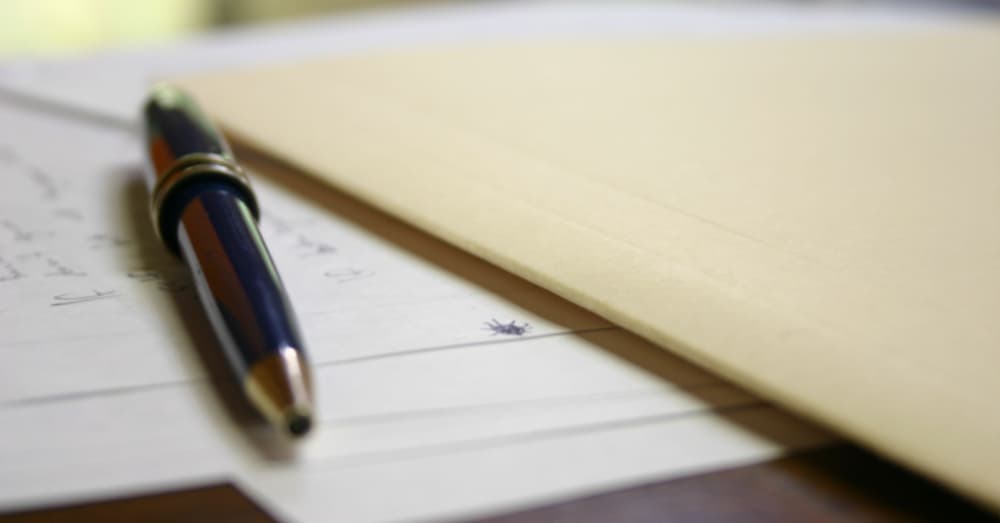
5 Little-Known Mistakes with NZ Customs Clearance (Instant $800 Fines)
11-minute read (22-minute watch)
Import rules change on a regular basis. Find out what can cause extra delays or fees.
📚YOU WILL LEARN:
- Ways that an overseas supplier can ruin your compliance with NZ authorities.
- Situations when you are paying too much or too soon.
- How NZ Customs or NZ MPI Biosecurity will charge you and some hidden costs that you may not be aware of.
Max: Today, we will talk about five common mistakes that a lot of importers make with New Zealand customs clearance.
You will learn things like ways in which an overseas supplier can ruin your compliance with New Zealand authorities; situations when you are paying too much or too soon; how New Zealand customs or MPI Biosecurity will charge you, and some other hidden costs that you may not be aware of.
Let’s start with the first thing that we notice a lot of importers are missing.
If you’ve been trading for a long enough time – at least for a year or more – and you have a good credit history and sound backgrounds, then you could potentially get a credit account with the New Zealand customs, which means that you don’t have to pay import taxes upfront.
You can save a lot of money by doing that. Not only it helps with your cash flow, but also it will give you extra money to use in your business or reinvest.
Imagine a consignment worth 10,000 NZD or 100,000 NZD, and you have to pay 20% import customs fees – 5% duty and 15% import GST. You get 2,000 NZD or more to keep in your pocket and use the way you want.
Obviously, you will have to pay it later. Sometimes it could be two weeks later or 5 weeks later – all depends on your personal circumstances.
Another common mistake with New Zealand customs: you import goods to New Zealand, and you got used to paying import duty. What you may not realize is that you actually can apply for a concession code and have your product become duty-free.
It’s not easy, and it’s not cheap. However, if you import regularly – say, a couple of times or more a year – you could save hundreds, if not thousands of dollars by applying for a concession code.
You may wonder how much does it cost to get a concession code. Allow at least 500 NZD for New Zealand customs service to consider your application for one simple product. On top of that, a couple of hundred dollars for the time of the customs broker or freight forwarder.
Saying that you will still save a lot more if you import goods on a regular basis.
How to get the concession code and minimize your import duty? First, you have to pay for the service. Note that it’s not guaranteed that you will get it.
It will take at least a couple of months to go through the whole process because you have to make interested parties aware. If there is an industry, which relates to your product, its players must have a chance to dispute your duty-free claim.
Obviously, they will object because they want to sell their own products. One of the reasons for duty is to protect local suppliers. In this situation, you would have to prepare your case and wait for the decision.
If you’ve got a solid proof, you may be able to get this concession code. You would also have to supply evidence to prove that your product is going to meet the requirements.
Once again, it’s going to take a lot of time and paperwork from your side as well as from the customs broker side.

The third mistake that many importers make: they see that goods are being sold in New Zealand and automatically think, “Well, I can import these goods.”
The biggest problem here is the possible confusion because some of the goods require special permission, special documents, or special license.
If you’ve never done it before, it pays to check the import requirements with a customs broker, New Zealand customs or New Zealand MPI.
There was a compelling case a couple of months ago; I believe it went to court.
Two different brands and two different companies had a dispute. One company was trying to import cereals called Weetabix, and a New Zealand manufacturer had a similar product called Weet-Bix.
In the past, they were able to import Weetabix in New Zealand on a smaller scale. I believe their last container was stopped because the consignment was big, so the competitor put a stop order. They had to argue, who was right, and who was wrong.
Once again, you have to be careful with this kind of shipments. Even if you can bring the goods up to a New Zealand border, sooner or later, you may have a problem with the local supplier, if you become a serious competitor to them.
To check it, you can talk to a customs broker or to New Zealand customs to see what has been done in the past.
You have to be careful with brands, especially with building materials – they must comply with local council regulations.
You may see a similar product being imported, but you don’t know whether it’s for personal use in small quantities or not. If you want to sell it, you have to check all these things.
In situations like with Weetabix, you will incur a lot of costs – you will have to pay for storage, while the dispute is happening. You may not even be able to get your hands on this product, which means you will lose the stock. Imagine how many thousands is that.
Q: “I’m a “very” small time importer of animal products. MPI often intercepts my packages and wants to get them fumigated, which is fine because biosecurity is important.
My problem is, however, that this process often takes a long time. I’m currently waiting on a parcel to get through, which has arrived in March. When I ring them, they’re often not helpful. Is there a way to get this process to move more quickly?”
Max: It is a common problem where you don’t have control of the government authorities. They could be busy if it’s a big season.
Well, we don’t know the details of this case. Do you have all documents issued correctly to the same importer? The person who bought the good is the same that’s importing them? Because this could be two different entities.
The customs client code has to match with everything. They want to be sure your product meets health and safety requirements.
To save you time, I recommend you to talk to a customs broker or New Zealand customs, or New Zealand MPI to find out the latest requirements.
We all heard about the recent case with guns, they were being stopped and now are not allowed to be imported.
You have to check with the government whether there were any changes in the last weeks/months since you imported.
Because there could be new requirements, and your product may no longer be allowed for one or another reason, or you may be missing some of the documents.
This is an evolving process. You have to be a good friend with your customs broker, and be in touch. Or visit your local New Zealand customs office.

Q: “Please, tell me, why is it important to submit the documents before the shipment leaves the port of origin?”
Max: Because there is not much you can do once the shipment is inside a container. It’s not just about the documents, it’s also about the goods.
For example, you want to import samples to New Zealand. Your overseas supplier can say, “Yes, we’ve done it before, and there were no problems.” But the rules may have changed.
To import samples, you have to follow specific rules. For instance, you have to put a label on a packaging indicating that these are samples and they are clearly not for sale; it has to be in small quantity; it has to be reasonable. There are other rules you have to comply with.
If you don’t know them, and it’s already done, you have to have proper paperwork in place; you have to separate your goods and declare them.
If something is not declared on the paperwork, and a customs officer will eventually find out, then you will get in trouble. You can get penalties – I believe there is an instant fine of 400 NZD; you can be blacklisted, or you can get further inspections on the following shipments.
It creates extra costs for you, delays. That’s why it is essential to get all your docs in a row before you pay for the goods.
Q: “Can you please confirm that tariff concession codes are different from importer & exporter client codes?”
Max: Yes. If you haven’t done importing ever, then you have to have a client code – and your supplier has to have a client code – with New Zealand authorities.
If it’s a big season, it could take at least a couple of business days. If you’ve got an air freight coming tomorrow, and you don’t have a customs client code, you will pay for storage charges.
At the airport, they charge now at least 300 NZD a day. You’ve got only one free day of storage, and then you’d have to pay for it unless you’ve got some other arrangements; and you’d have to pay extra to move it to a facility for temporary storage.
You don’t want to pay anything extra. Talk to a New Zealand customs officer or a New Zealand customs broker to find out what kind of documents and client codes you need, and how you can get them. It may be done for free, or for a small fee for a customs broker.
There is a lot of free information nowadays on government websites, including step-by-step instructions on how to complete the necessary paperwork.
Q: “Do I need to have a customs code for importing household goods?”
Max: There are two scenarios where you need a customs client code for importing used household goods.
If you’ve got a vehicle – whether it’s a car or a motorbike – you would have to obtain a customs client code, even if you’ve owned it in the past.
If you import used household goods for your personal use and you meet certain requirements – for instance, they have to be used for more than 12 months – then you don’t need a customs client code.

Max: Another mistake: a lot of importers are trying to be smarter than New Zealand customs. However, they may not even realize it – the supplier may under-declare the value of the goods for one or another reason.
This could make New Zealand customs put a hold on your shipment. They could ask you to prove that you’ve paid this amount.
Once again, your future shipments could be stopped if you try to avoid customs. You will get fines, and you will get in trouble if you do that with or without help from the supplier.
It doesn’t matter if you know it or not – it is the ultimate responsibility of you as an importer to make sure that you comply with all the government laws, regulations, and that you declare the actual value of the importing goods, the exact price that you paid for it.
Another way that you could get into trouble when importing some goods is if your supplier adds extra samples without you knowing about it. They may think of it as a favor. But if somebody discovers it, you will have to pay duty for it.
For instance, if you’ve got samples worth 1000 NZD in the whole container, you’d have to pay duty on that 1000 NZD. It’s going to be out of your budget, or it will damage your cash flows.
If you don’t tell your supplier your instructions, you may get an unpleasant surprise. Free samples are something that you have to be very careful with.
Another thing to be cautious about is items that incur a lot of duty – alcohol or tobacco. Some importers declare low alcohol content or low tobacco content.
Don’t forget that customs can see the pattern: they know the history of other importers, and they compare your shipment to other shipments. If they see something weird happening, they will stop your shipment and ask you questions; your customs fees could double or triple.
You won’t be able to just walk away. In many cases, they can even seize the goods if it doesn’t meet their requirements or they think you’re trying to deceive the customs.
They can still chase you for this import taxes, and you’re not going to get your stock. There are a lot of unfortunate situations that could happen if you don’t follow the rules.
I’m not trying to scare you – this is real, this is happening. If you run a business, if you do it properly, you’ll be fine. 99% of the shipments are fine. As long as you’re not trying to deceive anyone because, to be frank, it’s not worth it.
Q: “I will be receiving one plush toy sample. Do I still need to inform customs of this? I wasn’t going to because it could be any purchased plush toy.”
Max: You have to declare everything. If you’re lucky and it’s a low-value item – like, a 100 NZD worth item – it may go through the border by New Zealand post or another courier company without being stopped.
Still, you have to declare everything, and you have to pay taxes unless you meet certain requirements of these goods being samples.
As I said, different products have different requirements. You have to have a label “not for sale” or “sample only”; some lipsticks have other requirements. You can find this out from the New Zealand customs office, or you can check with your local customs broker.
Q: “In New Zealand, there is no GST applicable to buying a home for your family. What if you have the home built overseas and then imported into New Zealand. Is it possible to have no GST charged?”
Max: If it’s coming through the border, you have to pay GST. There are certain exemptions, but in this case, I’m pretty sure that you would have to pay import taxes. Be prepared to pay for it.
Let’s move to the next mistake. In the case of parallel import of a well-known brand from a manufacturer somewhere in Asia, you have to be careful and check if it is an authorized manufacturer.
They can tell you anything they want. Most likely, they will get away with it, because once they’ve got their money and they’ve exported their goods, it’s going to be your problem to prove to New Zealand customs or to a local brand that it’s not a fake, that it’s been done properly, that you’ve got the right paperwork.
You have to be careful where you buy your goods from. You can seek testimonials from other New Zealand importers, from other shops. Be cautious with parallel imports to avoid your products being seized and losing all the stock and money.
Thank you for your time. Enjoy the rest of the day.
P.S. Easy Freight Ltd helps New Zealand importers & exporters to save money on international freight and reduce mistakes by guiding how to comply with Customs and biosecurity rules.
➔ Contact us now to learn how we can assist you.
